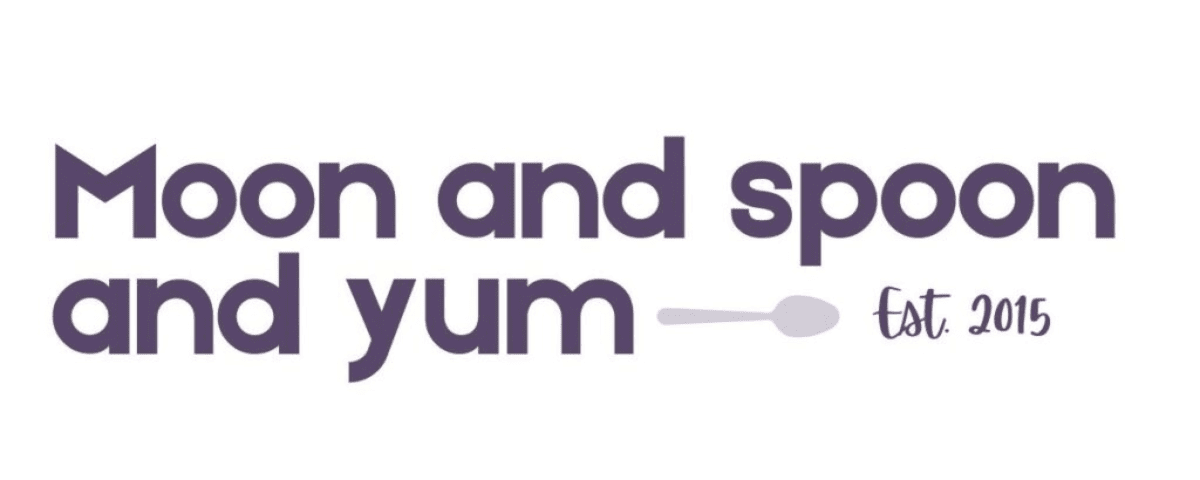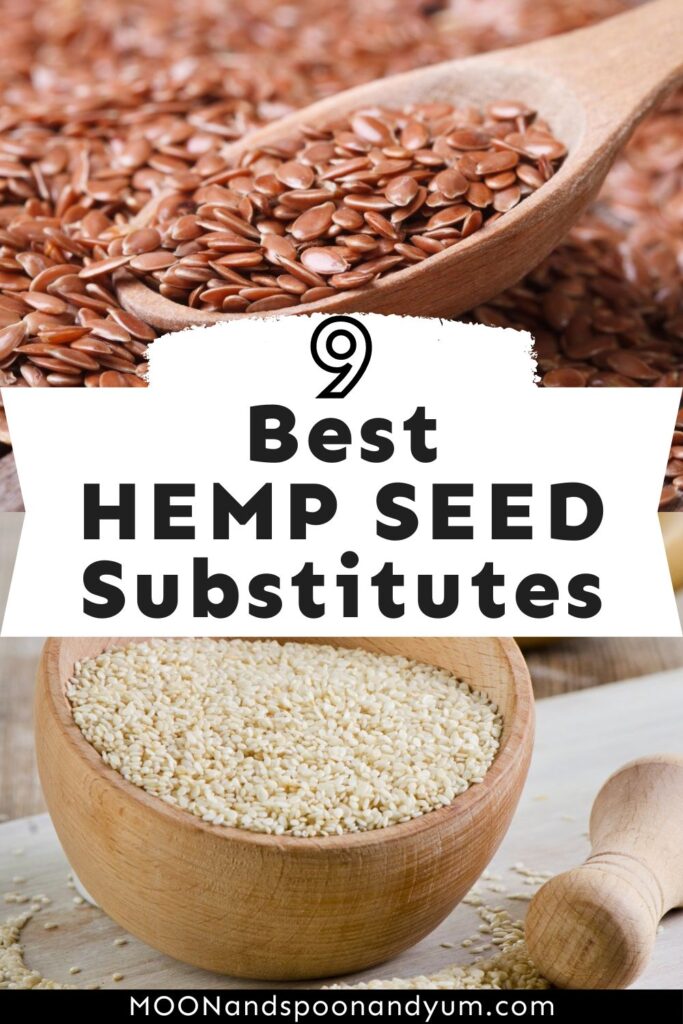9 Best Hemp Seed Substitutes
Hemp seeds are a top choice for healthy eating. They’re full of protein and fit well in many dishes. But sometimes, you run out. What do you do then? Learn all about our top hemp seed substitutes!

In this guide, we’ll cover easy-to-find hemp seeds alternatives. These options are nutritious and work well in any recipe that calls for hemp seeds.
What Are Hemp Seeds?
Hemp seeds, or hemp hearts when shelled, are small seeds from the Cannabis sativa plant. They’re not psychoactive, meaning they don’t cause the “high” associated with marijuana. These seeds are highly nutritious and rich in essential fatty acids, protein, and various minerals.
They have a balanced omega-6 to omega-3 ratio, which is beneficial for heart health and reducing inflammation. Hemp seeds also contain antioxidants and fiber and are a great source of magnesium.
Top Hemp Seed Substitutes
1. Chia Seeds
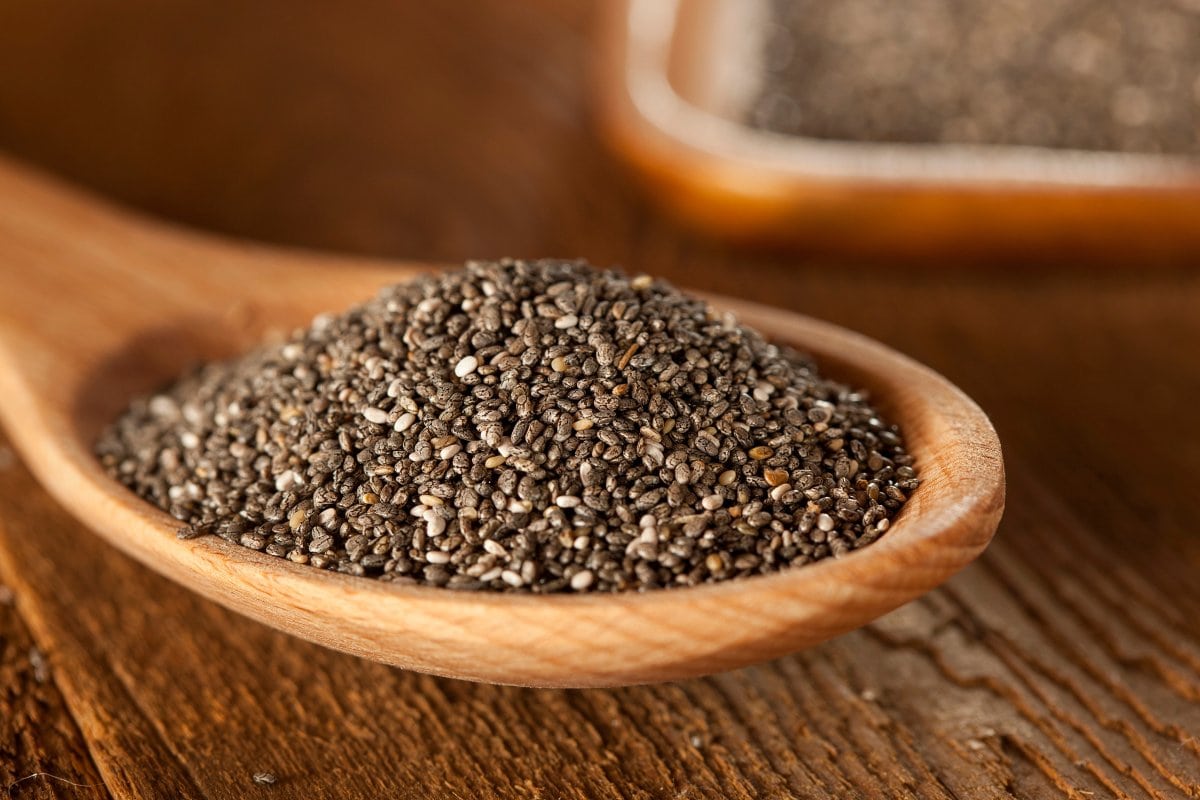
Chia seeds are tiny, black seeds that are native to Mexico and Guatemala. They’re known for their ability to absorb water and form a gel-like consistency. This unique property makes chia seeds ideal for creating chia pudding or as a thickening agent in recipes. Similar to hemp seeds, chia seeds can be sprinkled on cereals, oatmeal, and salads to boost nutritional content.
Chia seeds are a complete protein. These seeds contain all nine essential amino acids, though they have less protein compared to hemp seeds.
2. Sesame Seeds
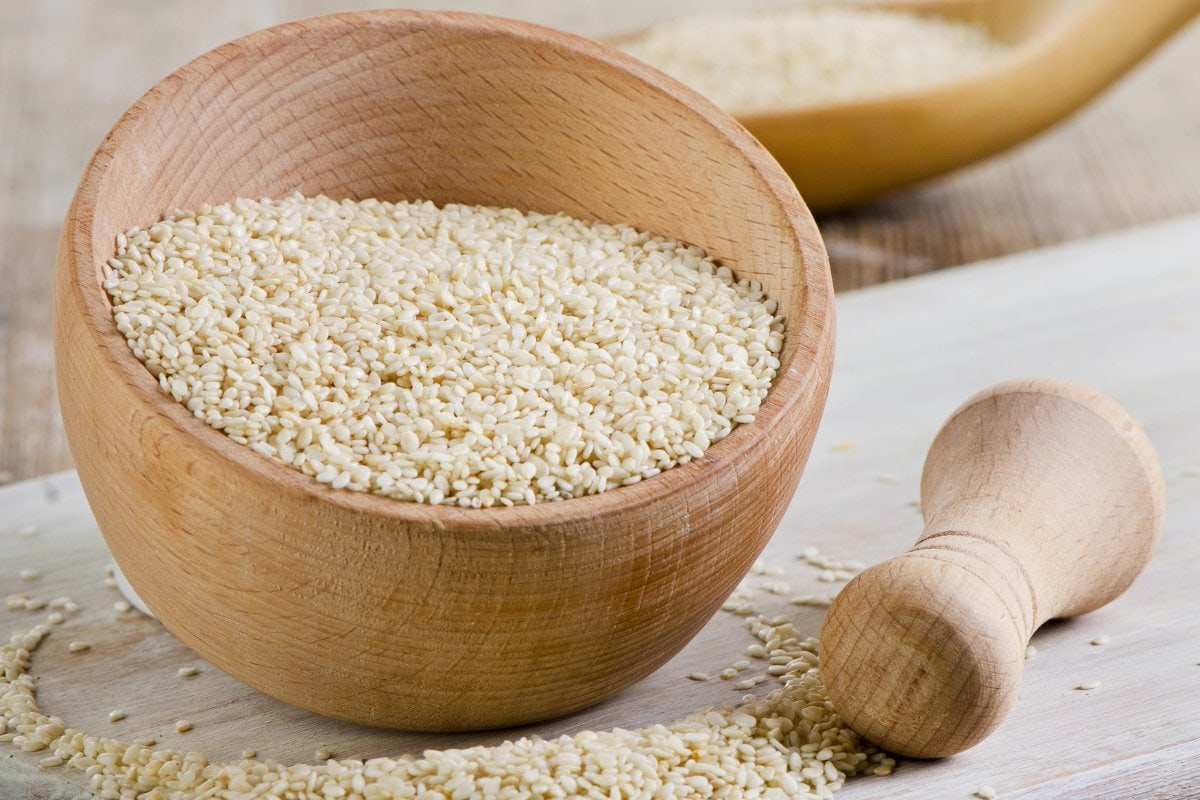
Sesame seeds are small, oil-rich seeds. They come in a variety of colors including white, black, and brown. These seeds share a nutty flavor and crunchy texture with hemp seeds, making them a suitable alternative in dishes. Though sesame seeds may not provide as much protein as hemp seeds and are considered an incomplete protein, they are still a valuable source of nutrients.
Sesame seeds are rich in lignans, which may help in cholesterol control, and contain a good amount of minerals like calcium and magnesium. Their high oil content also contributes to their distinct flavor.
3. Sunflower Seeds
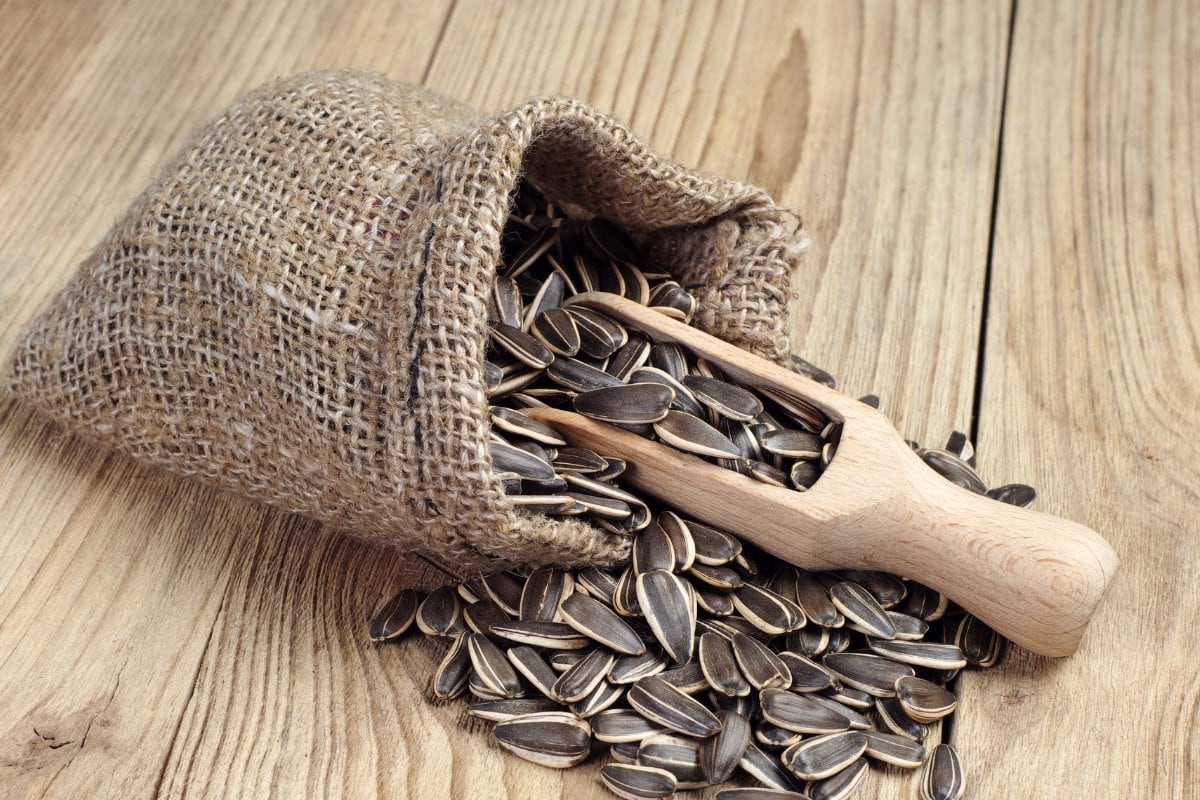
Sunflower seeds are the edible fruits of the sunflower plant. They are known for their distinct nutty taste and firm yet tender texture. They are commonly used as a topping for cereals and salads and can be incorporated into baked goods.
These seeds are a solid source of protein, though they offer less than hemp seeds. They are particularly rich in vitamin E and also provide valuable nutrients such as calcium, iron, and magnesium. However, for those with histamine sensitivities, it’s worth noting that sunflower seeds have a higher histamine rating, scoring a 2 on the SIGHI list. This means they may trigger reactions in sensitive individuals and should be consumed with caution.
4. Flax Seeds
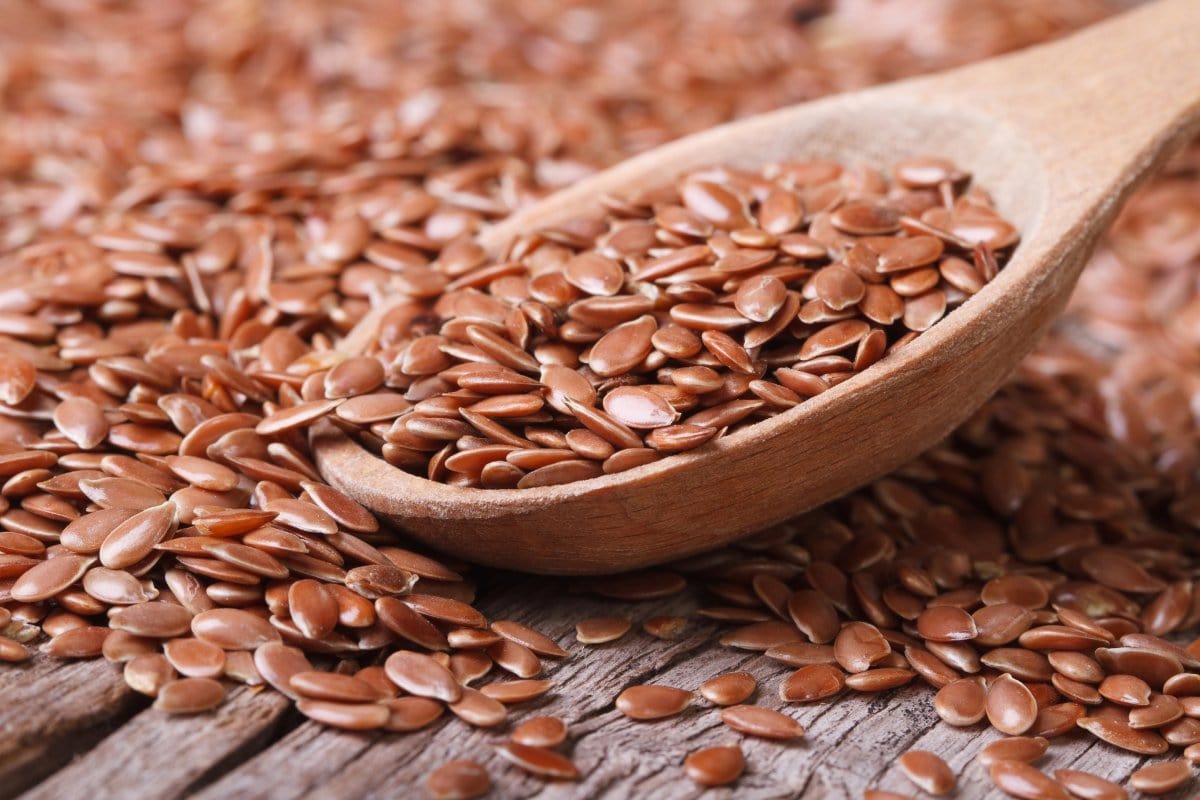
Flax seeds, also known as linseeds, are slightly larger than hemp seeds. These seeds offer a substantial amount of fiber and are one of the richest plant-based sources of omega-3 fatty acids, particularly alpha-linolenic acid. Flax seeds can be ground and added to a variety of dishes, including cereals and baked goods, to boost their nutritional profile. They are also useful in vegan baking as an egg alternative.
5. Pumpkin Seeds
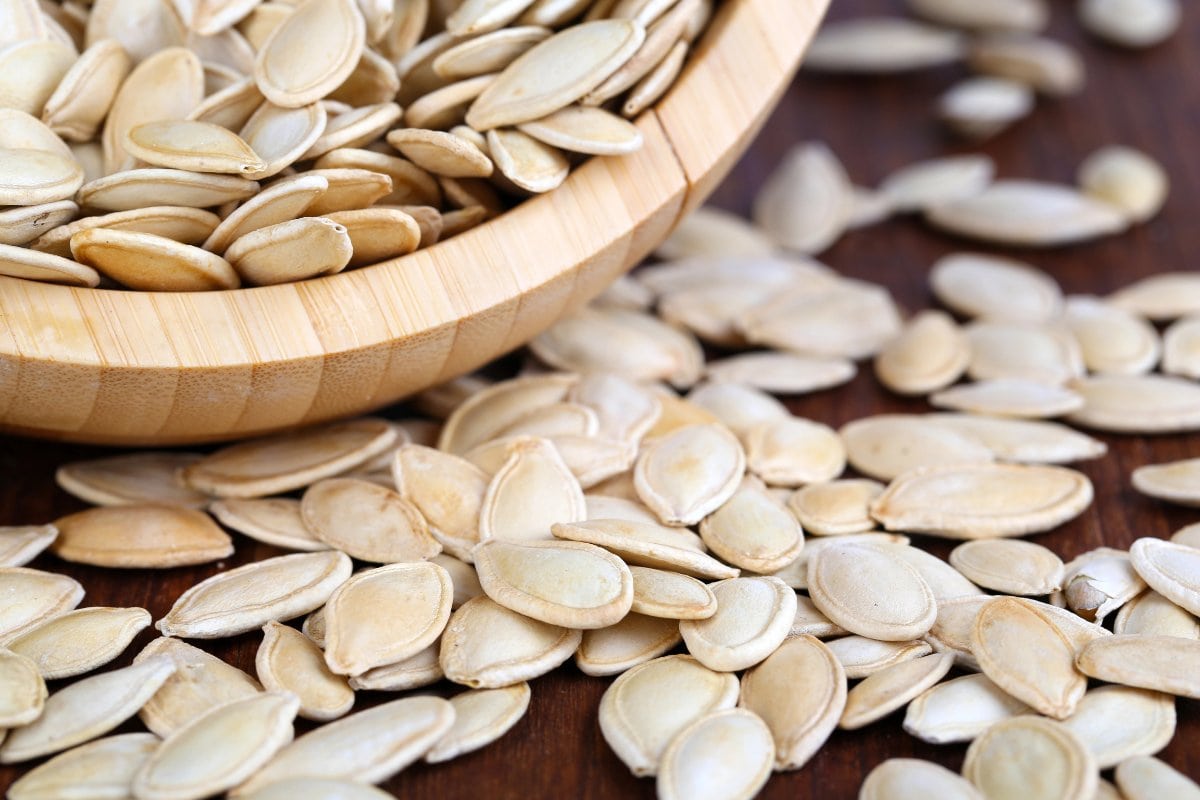
Pumpkin seeds are the edible kernels of pumpkins. They have a nutty flavor and a satisfying crunch, similar to hemp seeds. They can be used as a substitute for hemp seeds in various dishes, such as toppings for oatmeal and salads or consumed on their own as a snack.
Roasting pumpkin seeds enhances their flavor. Additionally, these seeds can be made into homemade pumpkin seed butter or used to create a flavorful dressing for salads.
6. Almond Meal
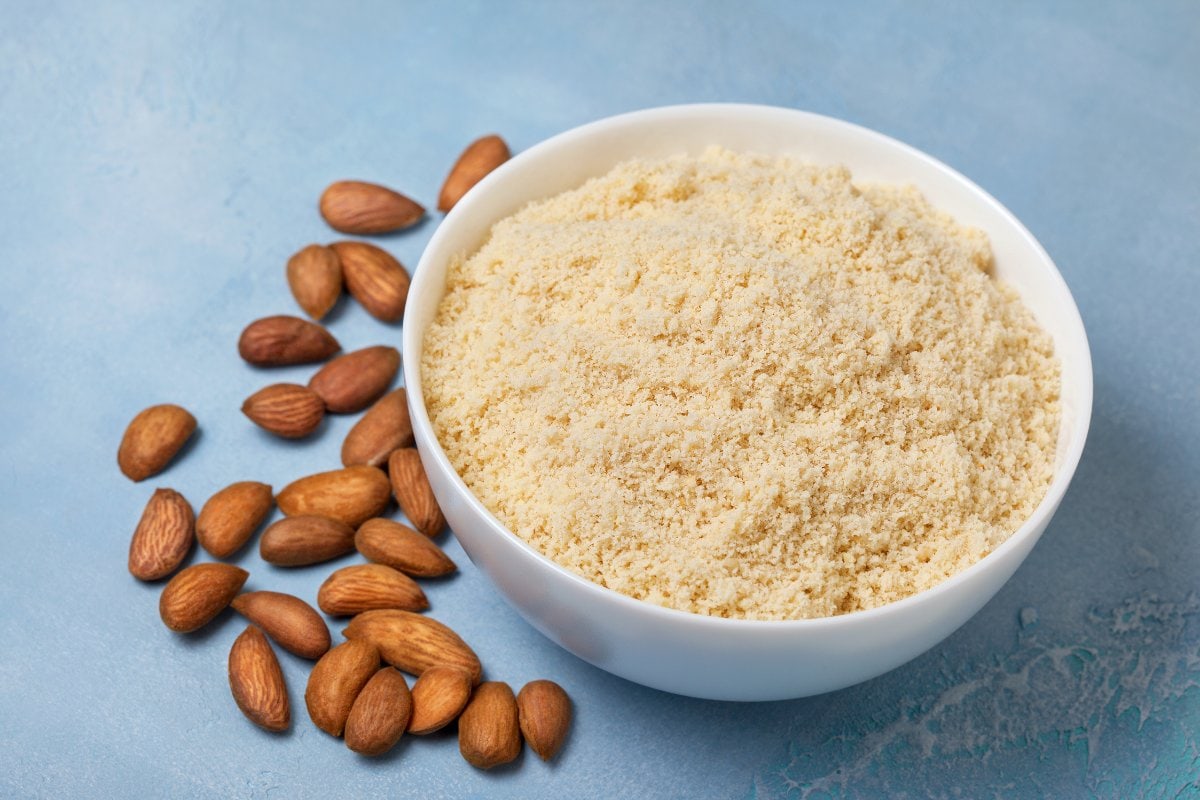
Almond meal, also known as almond flour, is a gluten-free flour alternative made from finely ground almonds. It’s particularly useful as a substitute for hemp seeds in baking and for making sweet treats due to its slightly sweet and nutty flavor.
Almond meal can be used in a variety of recipes, from pancakes and muffins to bread and cookies. It’s important to note that almond meal made from unblanched almonds includes the skin, giving it a coarser texture, whereas almond flour is typically made from blanched, skinless almonds, resulting in a finer consistency.
7. Quinoa
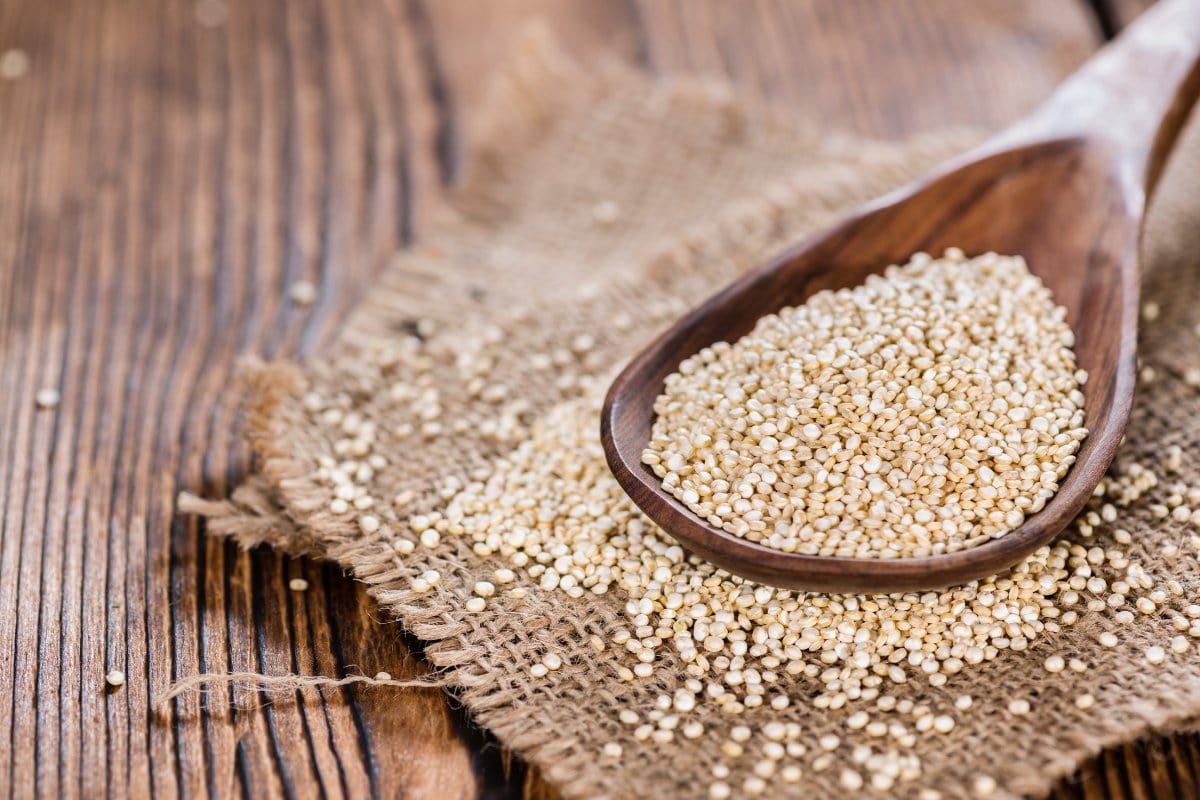
Quinoa is a nutritious seed commonly used as a grain substitute. It is known for its light, nutty flavor. You can purchase them raw to cook at home or buy in pre-prepared packets for convenience. Quinoa is an excellent hemp seed substitute for savory dishes, particularly in salads.
Like hemp seeds, it is a complete protein, containing all nine essential amino acids. Although it might not be the go-to topping for smoothie bowls or chia puddings, quinoa’s versatility extends to various meals, including some breakfast dishes like berry quinoa breakfast bakes. You can simply toast raw quinoa on the stovetop to bring out its nuttiness and hemp seed-like texture.
8. Pine Nuts
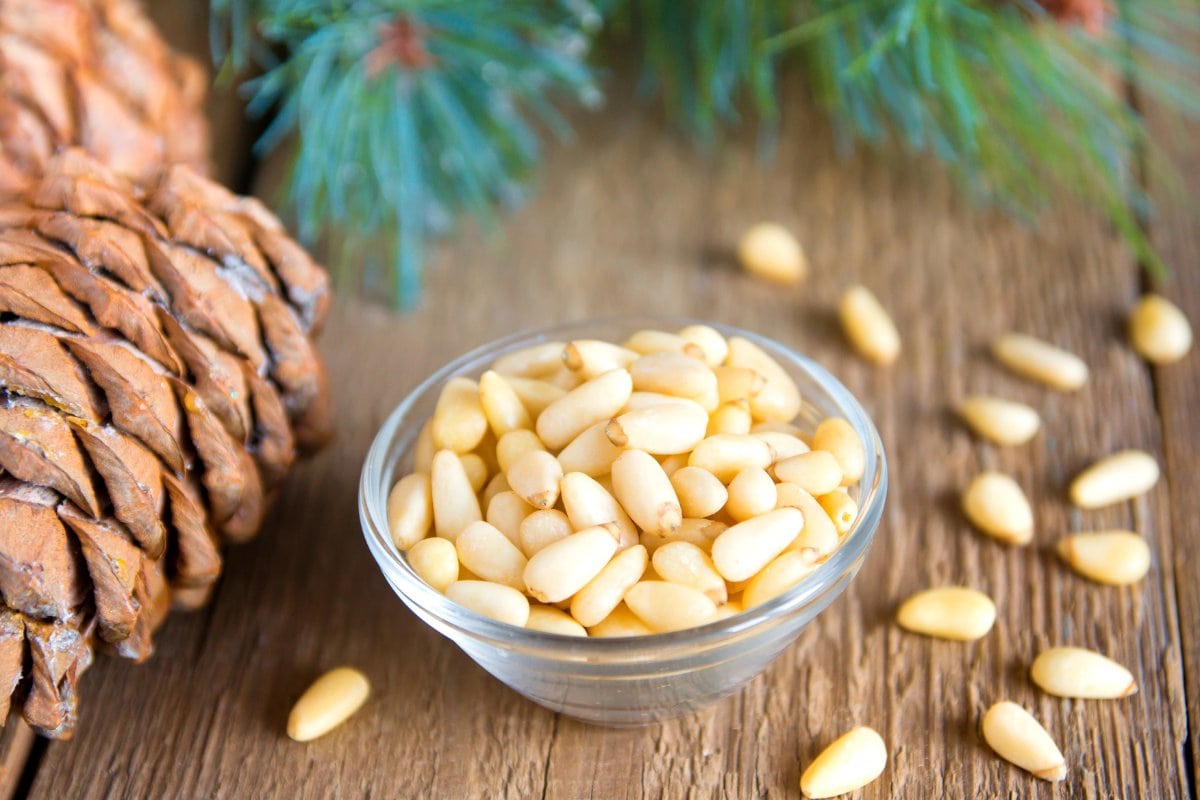
Pine nuts are the edible seeds of pine trees and are often used in savory dishes. Sprinkle them over salads or incorporate them into pesto, much like hemp seeds. These small, creamy-colored nuts have a rich, buttery flavor that complements a variety of recipes. However, don’t consume pine nuts if you have a tree nut allergy.
9. Desiccated Coconut
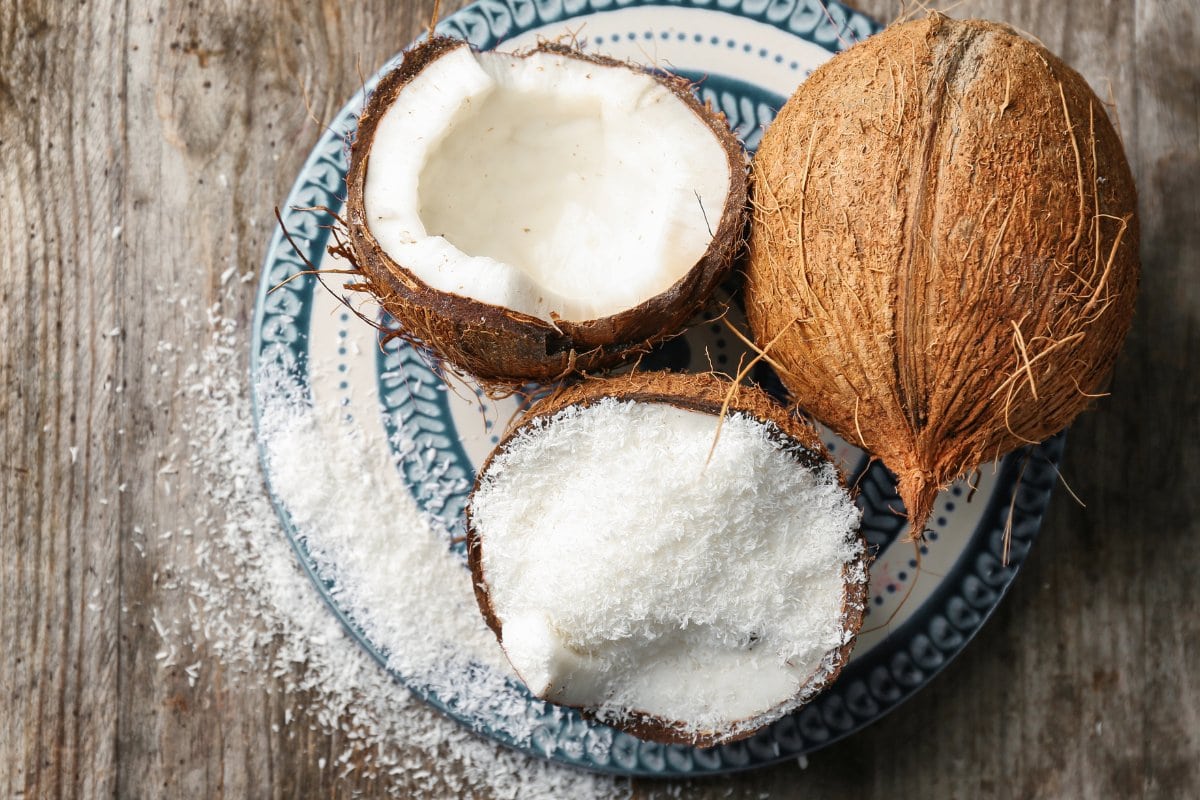
Desiccated coconut is finely ground, dried coconut meat, often used in baking for its fine texture and sweet flavor. While it doesn’t provide the protein that hemp seeds do, its texture makes it a suitable addition to various baked goods.
This form of coconut is drier than shredded coconut and is unsweetened. Desiccated coconut is also a good source of dietary fiber and healthy fats, and it can add a tropical twist to dishes.
Frequently Asked Questions
Are Hemp Seeds Healthy?
Yes, hemp seeds are healthy. They are rich in essential fatty acids, protein, fiber, and various vitamins and minerals. Hemp seeds can contribute to heart health, improve skin disorders, and provide anti-inflammatory properties.
Is it OK to eat hemp seeds every day?
Eating hemp seeds daily is generally considered safe for most people. They can be a nutritious addition to a balanced diet due to their high nutrient content. However, it’s important to consume them in moderation as part of a varied diet.
What are the disadvantages of hemp?
The disadvantages of consuming hemp include the potential for digestive issues. Experts don’t advise consuming hemp in large quantities, due to their high fiber content. Some people may also have allergic reactions to hemp. And because they are high in fat, overconsumption could lead to excessive calorie intake.
